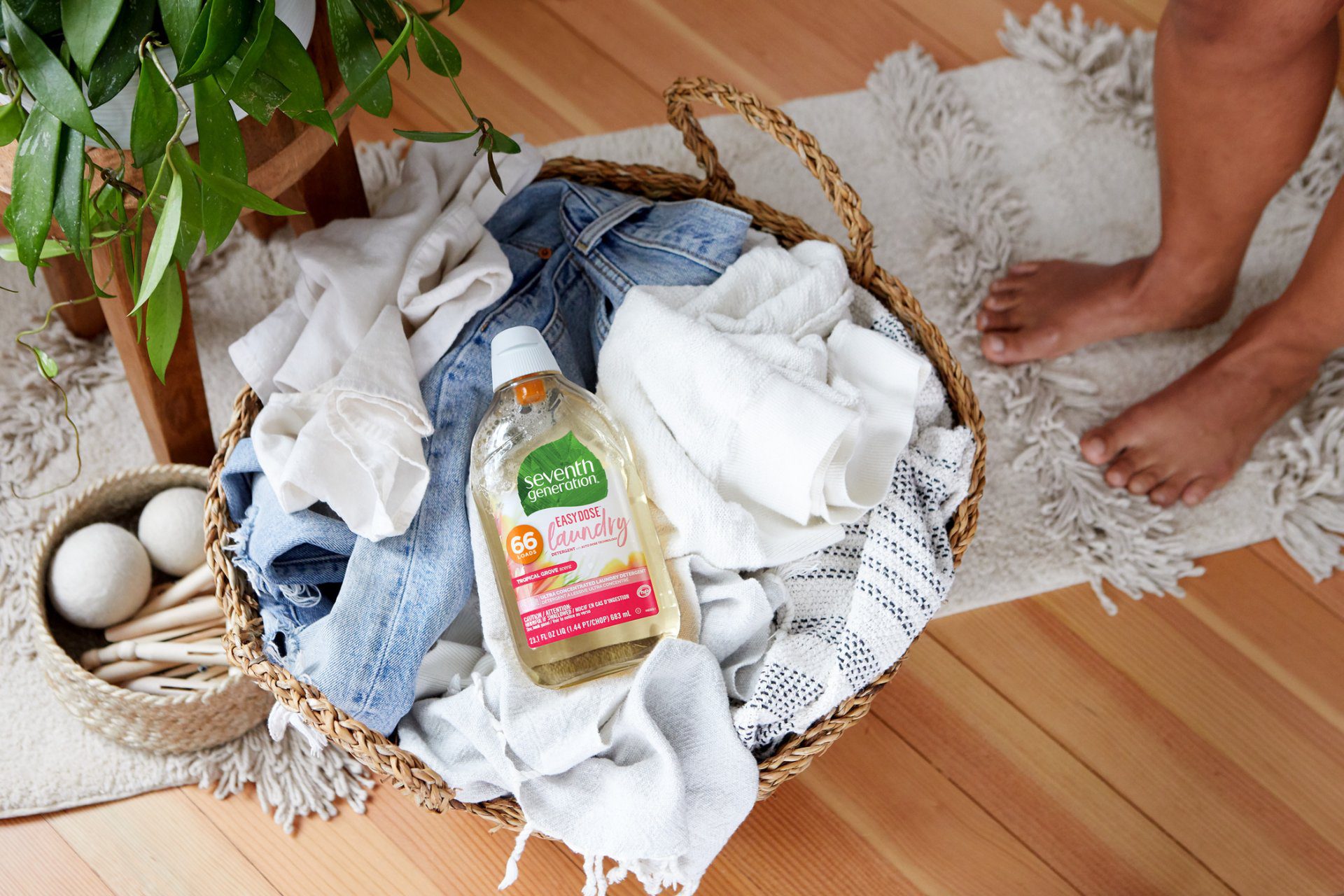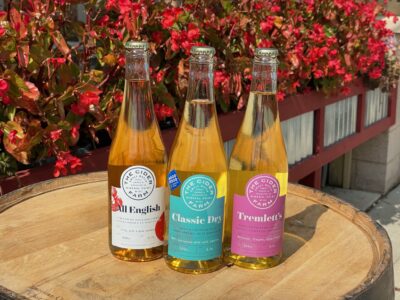(Bloomberg) —
Seventh Generation developed its ultra-concentrated laundry detergent because it was small and easier to ship to shoppers buying on Amazon. Four years on, the product is playing a key role in the company’s push to curb plastic and water waste.
The 23-fluid-ounce bottle contains much less water and lasts for more loads than the company’s traditional jug that clocks in at over three times the size. After its success, Seventh Generation, which focuses on making plant-based cleaning supplies and baby products, is pledging by 2030 to transition all its laundry products to concentrated formulas and eliminate large bottles from its lineup.
Leading the effort is Chief Executive Officer Alison Whritenour, who took the helm in July 2021 and has spent a decade at the Unilever Plc-owned firm. She also oversaw the company’s biggest rebrand in its 34-year history, which upgraded its trademark green leaf while making claims about efficacy more prominent.
Bloomberg recently spoke with Whritenour about how she plans to get shoppers interested in green products, including the benefits of concentrates.
Why is Seventh Generation pivoting to concentrated laundry detergents?
If you’re walking the aisles of a grocery store, it’s probably one of the biggest offenders of excess plastic and water.
Since the company already sells concentrated laundry detergent in a couple of different formats, what will these new offerings look like?
We’re really doing a lot of experimenting with formats right now. In 2024, we’ll have the next version of a liquid pod. We’re exploring laundry sheets. What we need to do is really learn with consumers right now about what’s going to be the format that really sticks.
One of the main issues with sustainable products is that consumers often try them once and don’t buy again. How are you tackling that?
For concentrated products in particular, it’s going to be a combination of efficacy and convenience. Take our EasyDose concentrated laundry detergent. From a sustainability perspective, this product has 50% less water, 60% less plastic and is 100% bio-based and biodegradable.
But the way we talk about it is that it’s an easy dose. [Editor’s note: The cap only allows the recommended amount of detergent to be dispensed]. So you don’t have to think about, “Am I pouring enough? Am I pouring too much?”
What kind of marketing are you putting behind concentrated products?
Right now 100% of our marketing goes towards driving the change to concentration. This year we did a big campaign around EasyDose that showed the small bottle and the big bottle side-by-side.
And especially because you can fit more of these in less space, it has freed up some room for us to create small communication boxes that tell you right at the retail shelf what’s the point of difference.
Why not ditch plastic altogether, like some startups have?
Some of the solutions, while they might not be plastic, aren’t always better for the environment. We focus on post-consumer recycled plastic and on using less plastic.
A lot of the aluminum bottles that you see today — especially ones that aren’t filled with concentrated products — tend to actually have more impact. And when it comes to refills, I don’t know that there’s a willingness to wait or do extra work. So we’re trying to do as much work as humanly possible for the consumer. That way they can just have a great experience with the product.
How have sustainable home products performed during the pandemic?
The green segment of cleaning isn’t having the easiest time right now. During the pandemic, conventional brands like Procter & Gamble had about 90% to 95% in stocks while smaller brands like us struggled a little bit.
There’s also been a bit of a mindset shift. Financial insecurity, war, health and safety — we’ve seen that come up on the list of what’s on folks’ minds, while the environment has dropped down a little bit.
Editor’s note: This interview has been edited and condensed.
To contact the author of this story:
Daniela Sirtori-Cortina in New York at dsirtoricort@bloomberg.net
© 2022 Bloomberg L.P.





